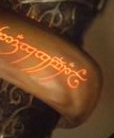| Cenerue |
|
MalinornëFAQ Admin, Quenya Moderator & EldameldëPosts: 1205 Send Message |
|
| Meldon |
|
| Cenerue |
|
MalinornëFAQ Admin, Quenya Moderator & EldameldëPosts: 1205 Send Message |
|
| Cenerue |
|
MalinornëFAQ Admin, Quenya Moderator & EldameldëPosts: 1205 Send Message |
|
| Cenerue |
|
| Meldon |
|
MalinornëFAQ Admin, Quenya Moderator & EldameldëPosts: 1205 Send Message |
|
| Gelmir |
|
| Meldon |
|
| Cenerue |
|
MalinornëFAQ Admin, Quenya Moderator & EldameldëPosts: 1205 Send Message |
|
| Cenerue |
|
MalinornëFAQ Admin, Quenya Moderator & EldameldëPosts: 1205 Send Message |
|
| Meldon |
|
MalinornëFAQ Admin, Quenya Moderator & EldameldëPosts: 1205 Send Message |
|
| Gelmir |
|
MalinornëFAQ Admin, Quenya Moderator & EldameldëPosts: 1205 Send Message |
|
| Cenerue |
|
MalinornëFAQ Admin, Quenya Moderator & EldameldëPosts: 1205 Send Message |
|
| LadyMeg |
|
MalinornëFAQ Admin, Quenya Moderator & EldameldëPosts: 1205 Send Message |
|
| Meldon |
|
| Cenerue |
|
MalinornëFAQ Admin, Quenya Moderator & EldameldëPosts: 1205 Send Message |
|
| Falagar |
|
| Cenerue |
|
| Falagar |
|
MalinornëFAQ Admin, Quenya Moderator & EldameldëPosts: 1205 Send Message |
|
MalinornëFAQ Admin, Quenya Moderator & EldameldëPosts: 1205 Send Message |
|
| Falagar |
|
| Cenerue |
|
MalinornëFAQ Admin, Quenya Moderator & EldameldëPosts: 1205 Send Message |
|
 Author
Author








 Poetry
Poetry




